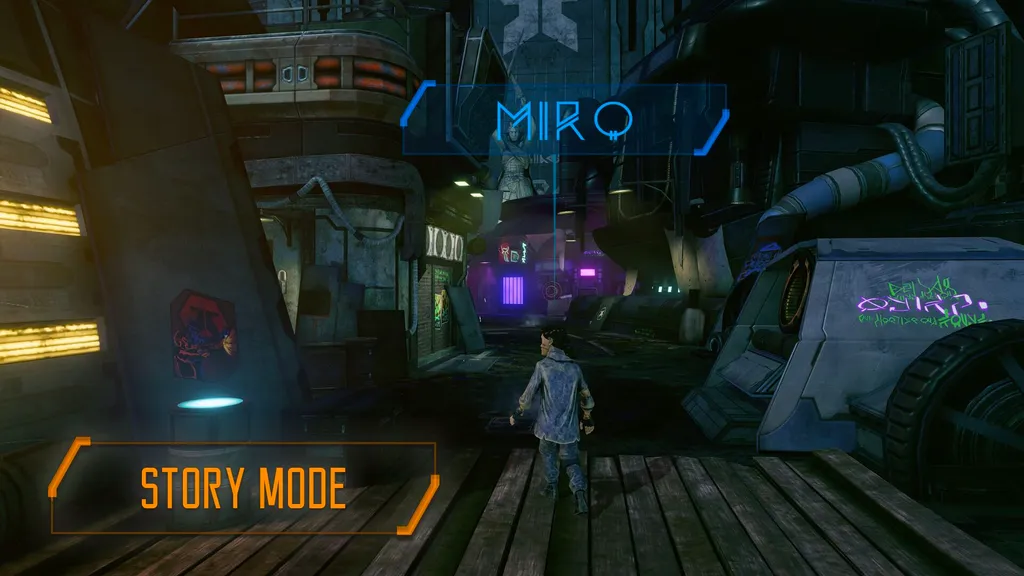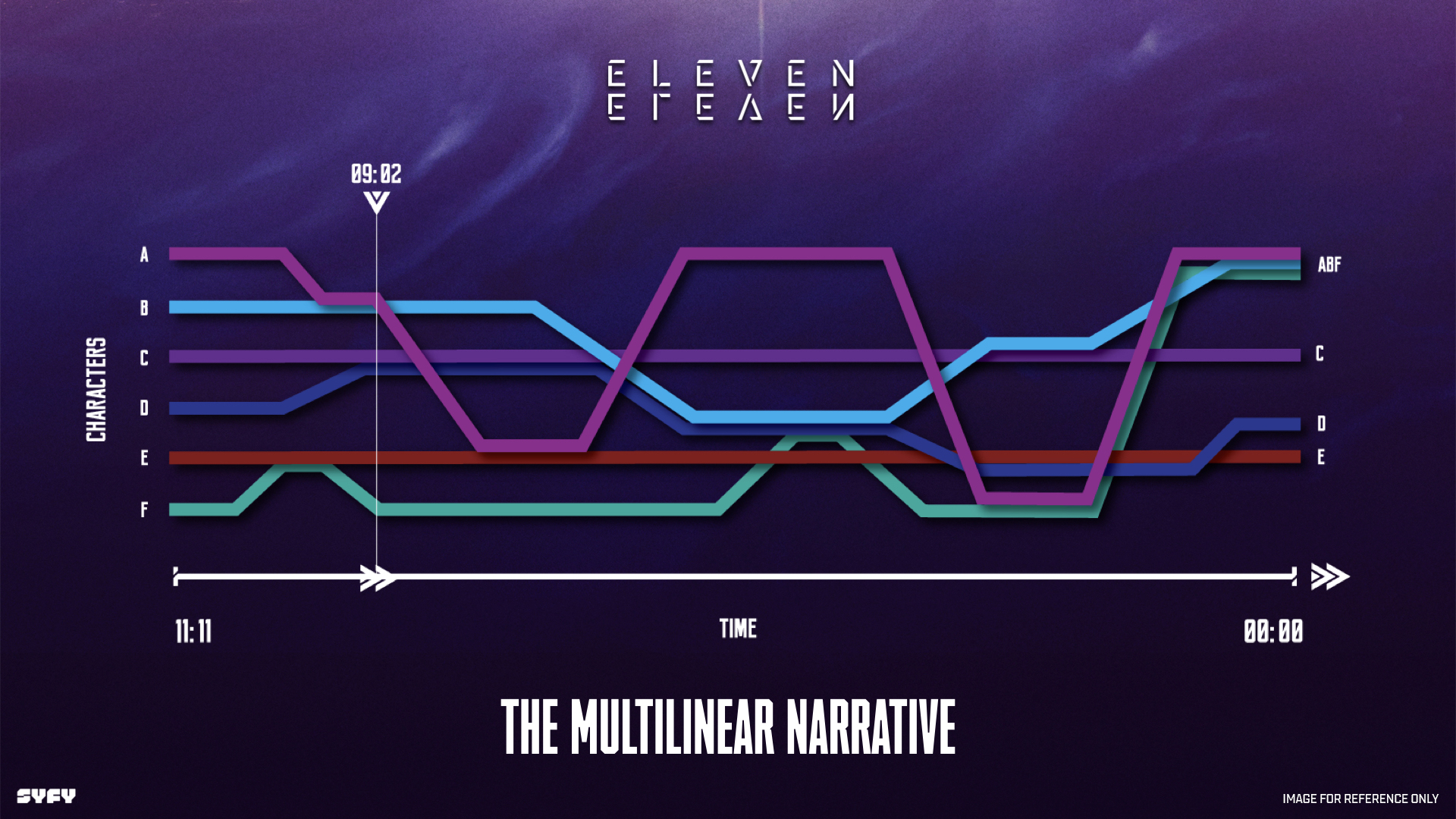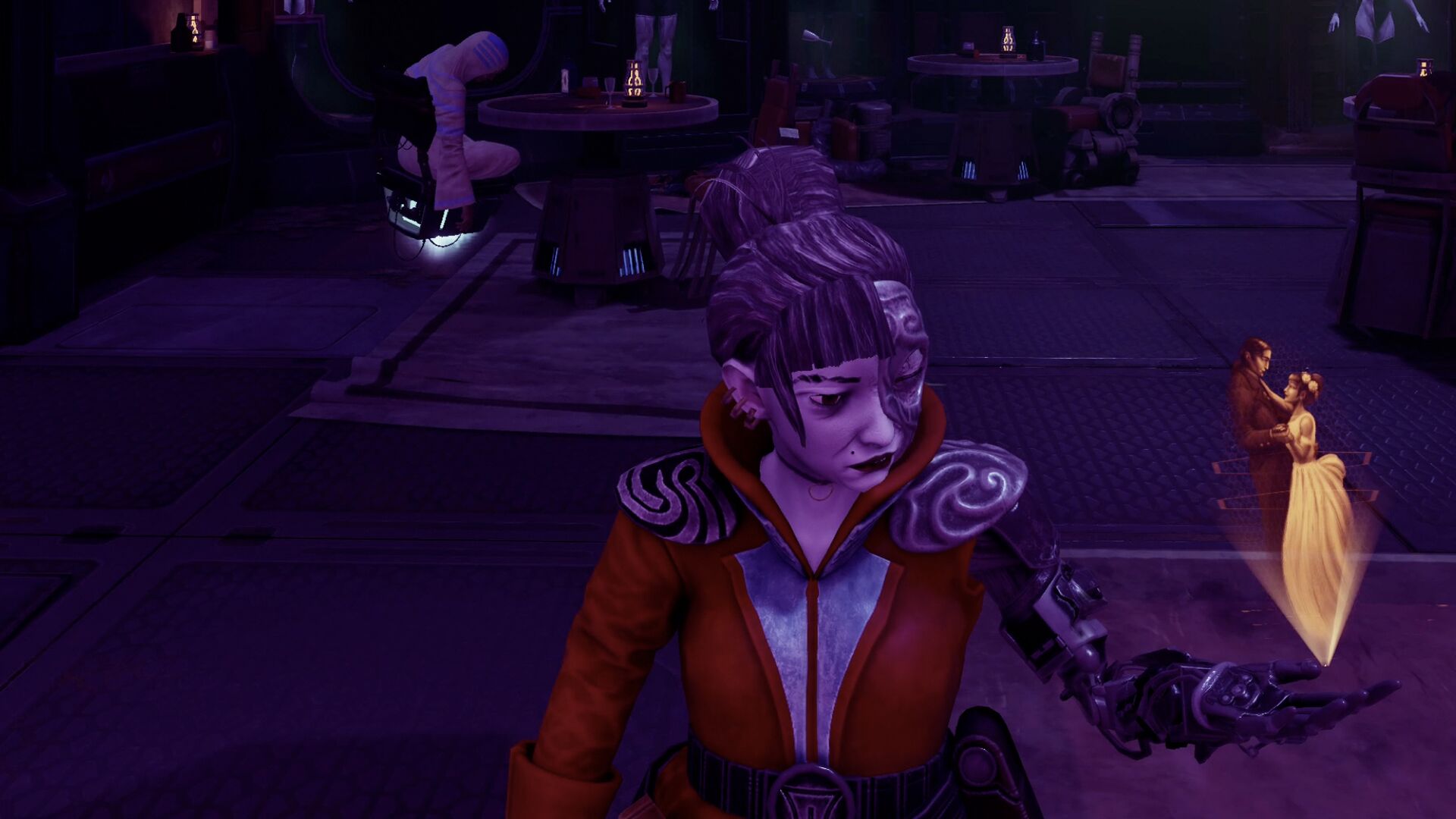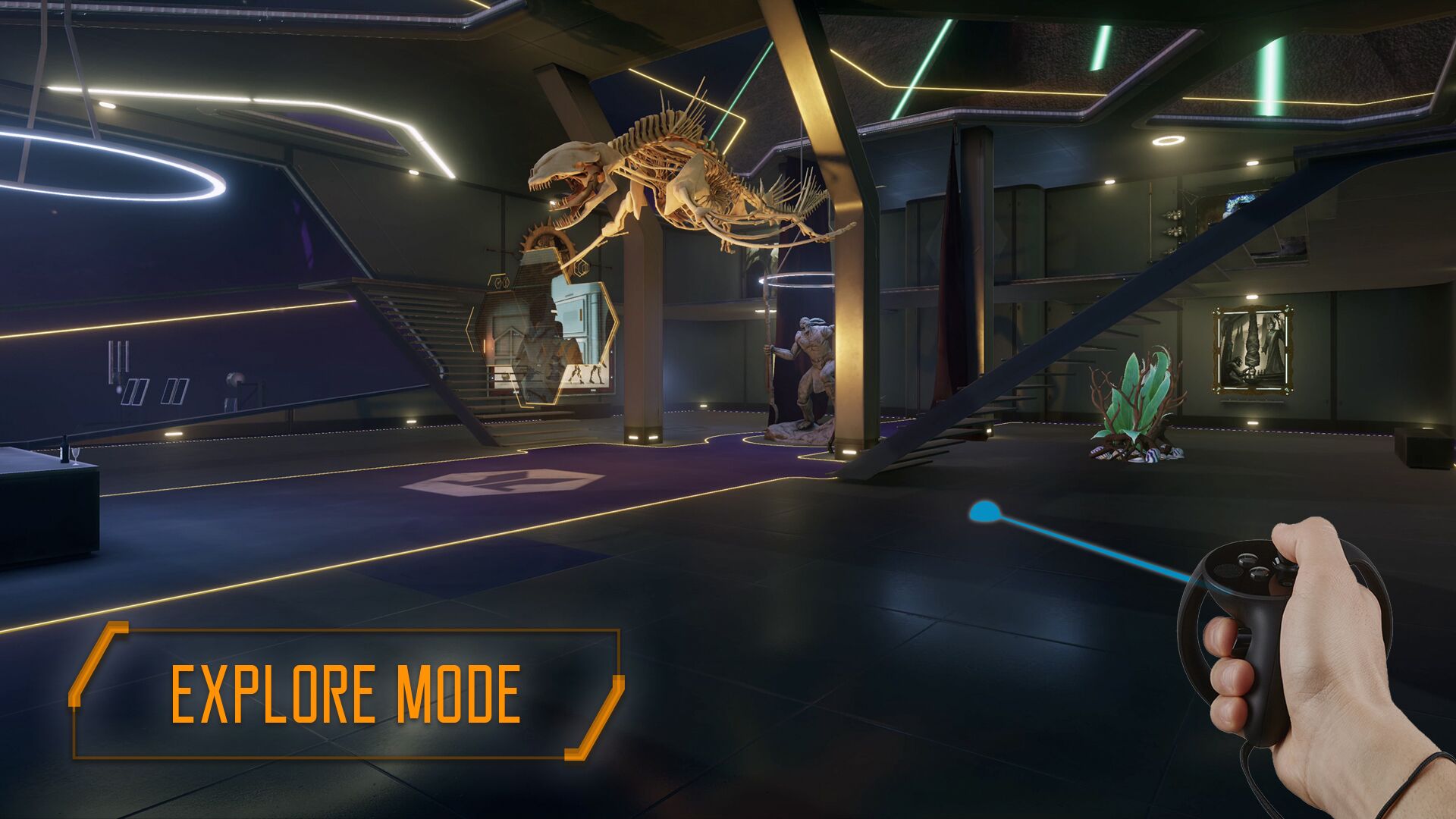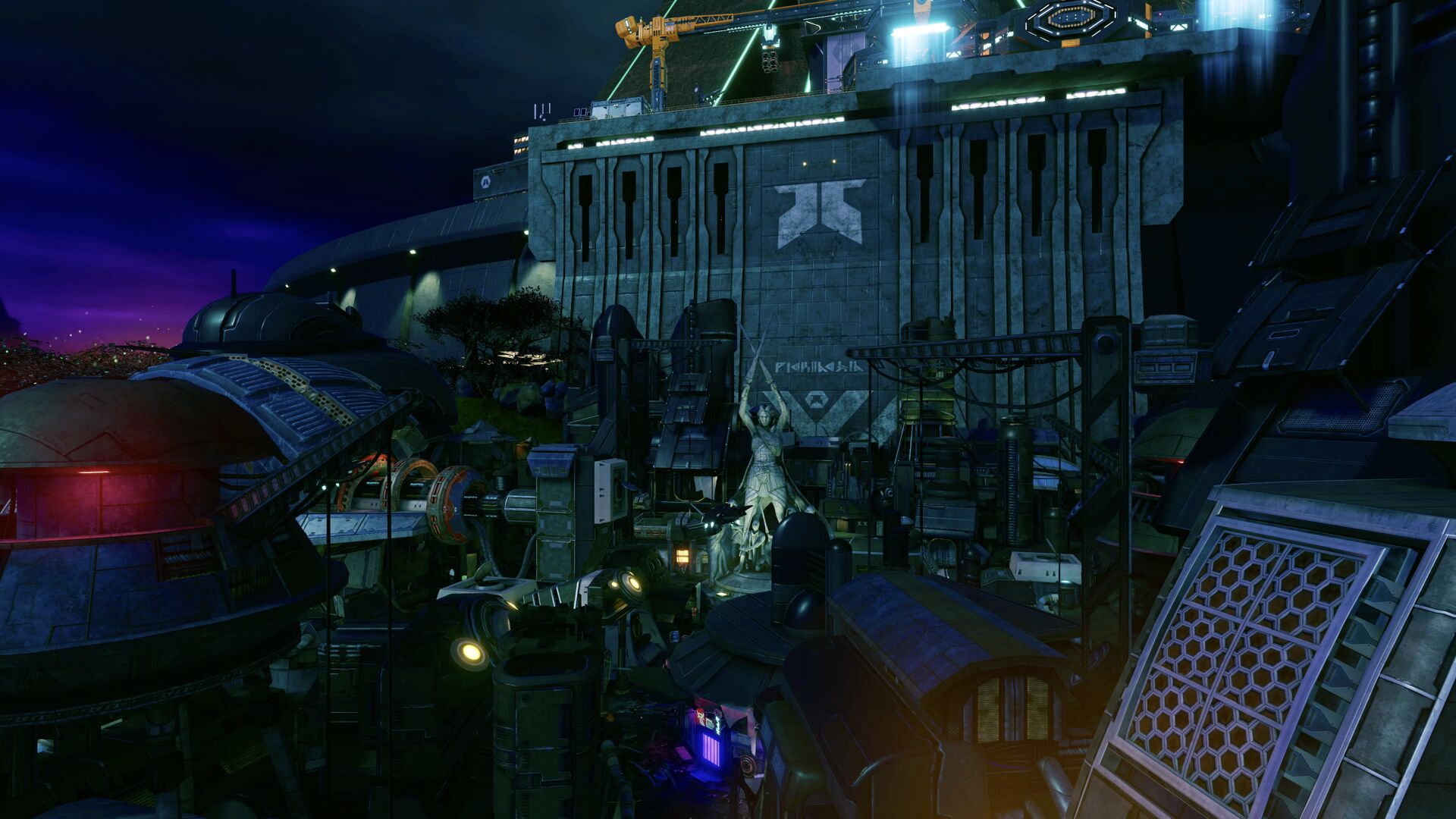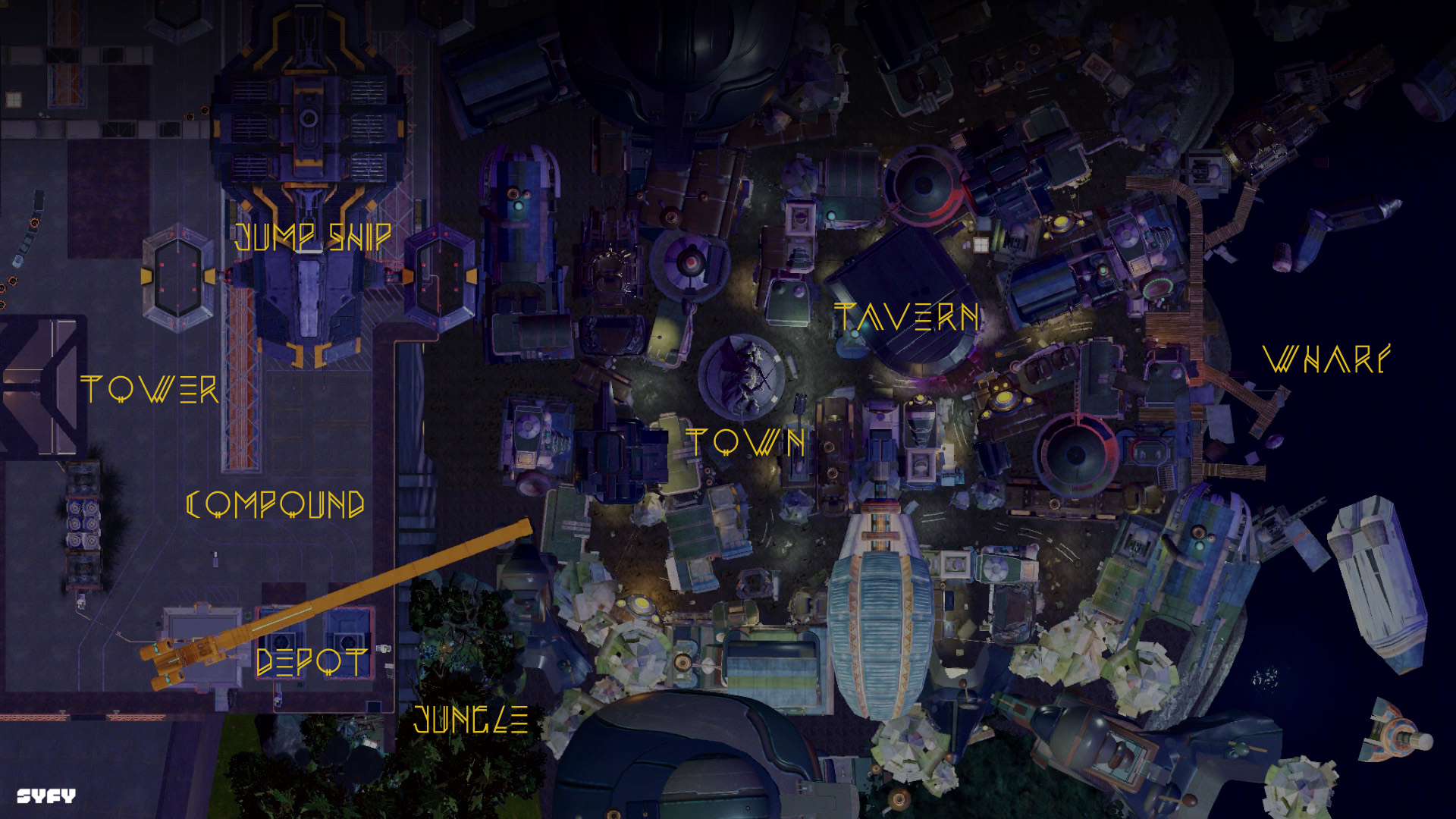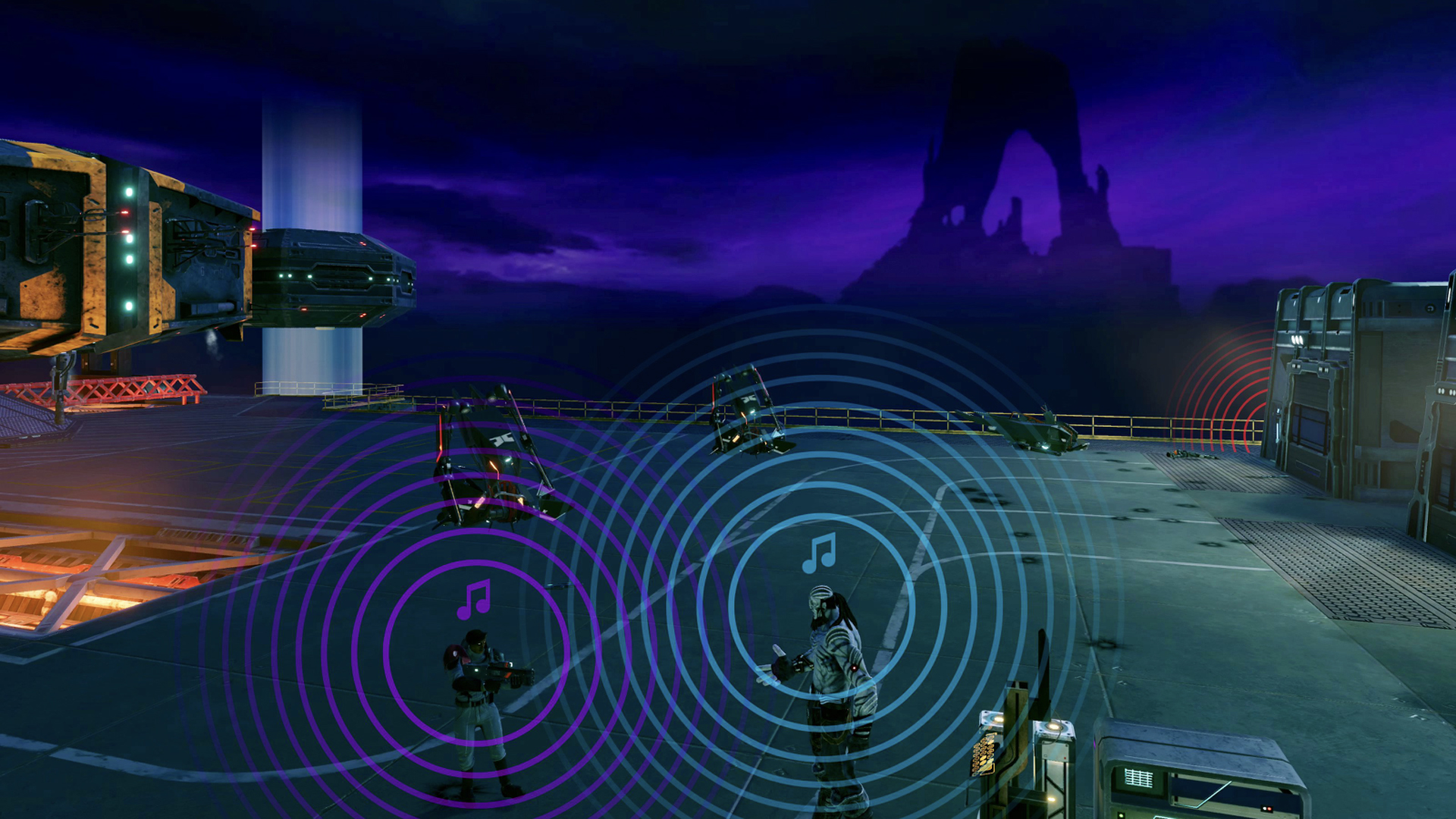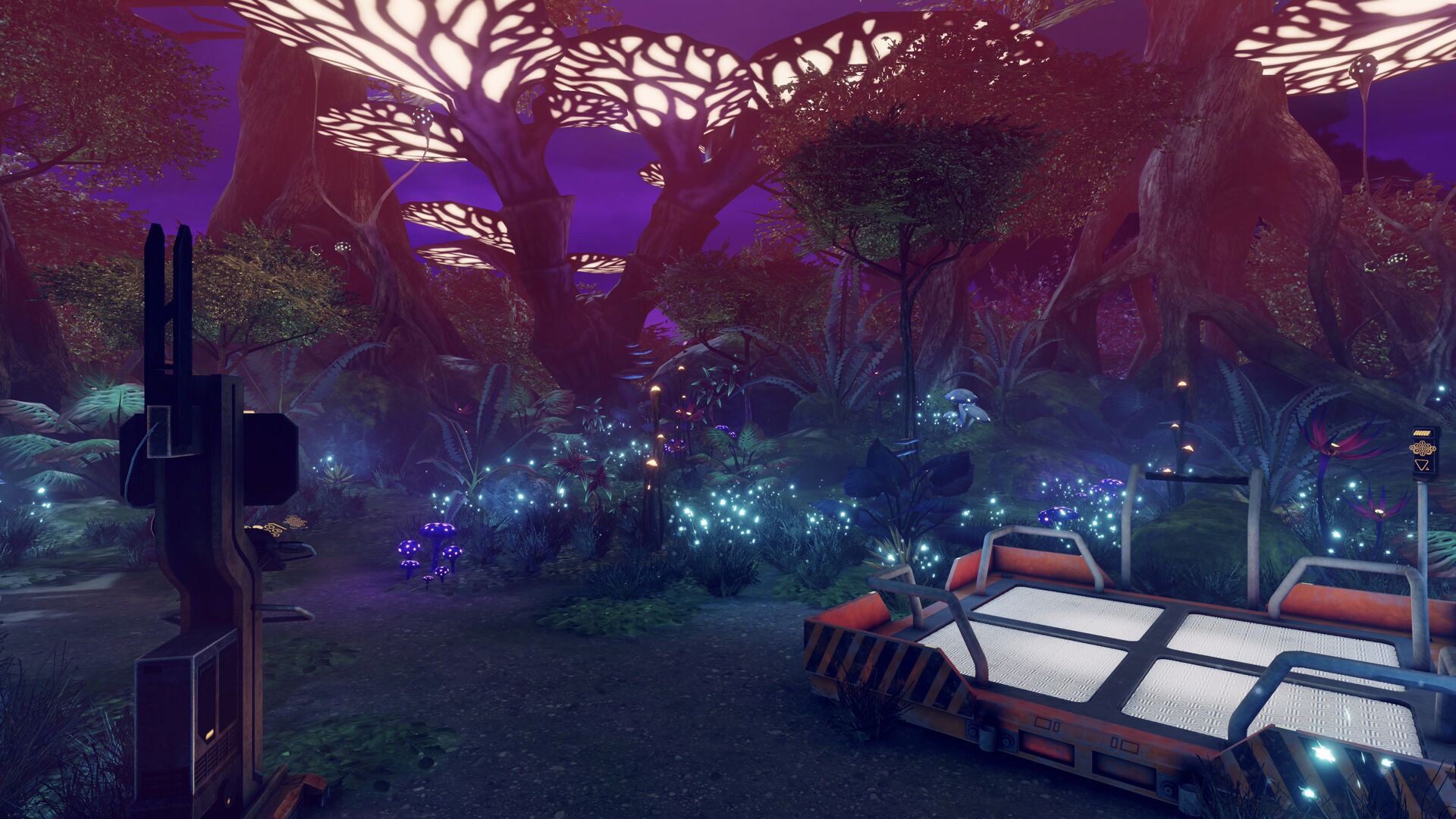Eleven Eleven is poised to offer audiences a thrilling immersive story that takes place over an eleven minute and eleven second countdown to an extinction level event. It sets the stage for the future of linear storytelling across media, beyond the VR and AR platforms that it will launch on worldwide this Wednesday at 4pm PST.
The original story takes place on the Island planet of Kairos Linea, where visitors explore seven locations and the stories of six characters as they try to make it to the final rescue ship in time, offering well over an hour of entertainment. It offers the connecting character narrative and navigational concepts that audiences loved about The Invisible Hours, and layers in new ways of experiencing story that make Eleven Eleven a breakthrough approach to immersive storytelling
Connecting Multiple Narratives
The experience connects the stories of the six characters through the feeling of real-time urgency, and one major event that will impact them all differently. Mehrad Noori, Director of Global Programming at NBCUniversal International Networks and Creator and Executive Producer of Eleven Eleven explains the importance of these two elements: “We designed the story around this structure, with multiple narrative threads playing out simultaneously and culminating with a global event that ties them all together.” The characters’ stories intersect with no cuts, and there is a viewing mode that accentuates this real-time element as you are able to watch all stories playout in the same view, described below. He further explains that “The real-time urgency of the clock ticking down to the end-of-the-world…inherently links the characters together as they face what could be their final moments.”
Each characters’ perspective contributes greatly to the depth of the story, so the Team decided to only let visitors unlock the finale once all stories have been experienced. I would not be surprised if this is just the beginning for the world of these characters, as the multiple narratives hint at well thought-out backstories.
Values of different viewing modes
The creators of Eleven Eleven do not want visitors to simply watch its story unfold, they want them to explore every layered element of it. “In creating Eleven Eleven we strived to deliver an entertainment event that could only be experienced in VR and AR,” Noori explains. “There is no shortage of compelling content for traditional screens, so we had to make sure we made something that was actually worth users spending their time in a headset or with an AR device.” So, they created multiple viewing modes to “give users choice in how they experience the story.” The three distinct viewing modes offer such unique perspectives to the world, that they may inspire users to revisit the story using each option.
Story Mode allows users to select any of the six main characters and simply follow their stories. It is the most comparable to the option of watching six different episodes to uncover what happened to each main character during the countdown to the major event. It offers users an uninterrupted understanding of each character’s journey, generating increased engagement and understanding for each of them. And with each of their stories unfolding up to the major event, every moment is packed with important narrative detail.
Explore Mode allows users to discover the stories on their own. They can detach from a character’s narrative at any time, to explore the environment, watch others, or search for Easter eggs that Noori shares “reveal more clues.” Explore Mode will be available for all VR and AR platforms that Eleven Eleven will launch on, outlined in the final section below, except for Mobile VR devices.
Goddess Mode puts the visitor at a vantage point that allows them to see all of the action playing out in real-time. It’s named after the centerpiece of the environment which is a statue of a deity named Ariella. Goddess Mode also turned out to become one of the most valuable ways for users to navigate the experience.
Navigational Tools That Deliver Unique Perspectives
The navigational tools for any form of experience need to offer value, and not disrupt a users’ engagement. As the story for Eleven Eleven spans across multiple locations and characters in real-time, navigation is essential. Noori explains that the user-interface “was designed to allow for the most robust experience especially when immersed in VR…The ability to dynamically change modes from more passive to more active viewing was a critical feature differentiating the experience from traditional video.”
The navigational behaviors vary slightly by platform, but the tools offer a range of abilities from being able to jump to different character stories, to fast forwarding, pausing and rewinding, through to being able to watch all storylines play out together in one view.
Noori shared that “At first we weren’t convinced that we wanted to incorporate fast forward and rewind features, but after initial tests it was clear that these were vital to ensure users don’t miss anything while enjoying the immersive environment.” The ability to pause time in the layered time-based story allows people to get a special perspective on what is unfolding.
“Goddess Mode” is a birds-eye view of the island, which lets visitors watch the full story without hearing all dialogues. Noori highlights that “it also serves as a really quick way to get around the environment. Instead of pulling up a clunky menu to navigate around the island, the user can simply switch to “Goddess Mode” and point to wherever they want to go, without interrupting any of the action. It’s the best menu system we could ask for.”
The controls do need to be learned, but they quickly become intuitive.
A Musical Score for each Character
Noori explains the Team’s innovative approach to music: “In a traditional TV show or film, every viewer sees the same frame, at the same time, every time and the composer creates a musical soundtrack to suit. With Eleven Eleven, since we have no idea where users will be looking at any given moment, it posed a unique challenge when composing the score.” As a solution, they created a “Spatial Score” for each character, and the volume adjusts based on the proximity of the visitor to each character.
“We also had to consider what happens when two or more characters are in close proximity to each other – how would we deal with multiple pieces of music layering on top of each other? We asked Bleeding Fingers – the award-winning company co-founded by Han Zimmer – to tackle this challenge, creating a suite of music that could do just that. All of the character scores are written in complementary keys and tempos so they interlink seamlessly. When a user is standing in the middle of two characters, they’ll hear both of their scores equally. But, if they lean towards one character, that character’s score will become louder while the other becomes quieter. This makes each play-through of Eleven Eleven not only unique in what you see, but also in what you hear.”
Each character’s “Spatial Score” is unique so it also serves as a signal that a character is present or even approaching. “…after a few play-throughs of Eleven Eleven, if the user hears a certain instrument or melody fading up from around a corner, they will intuitively know which character is there without seeing them.”
Maximizing the Audience with VR and AR
Eleven Eleven will launch as both a VR and AR experience across seven platforms. For VR, it will be available for Oculus Rift, HTC Vive, PlayStationVR, OculusGO, and Samsung Gear VR. The mobile AR version will be available exclusively on the Apple App Store for iPhone and iPad, at launch. With the AR version, viewers can roam around the story world as the action plays, getting closer to characters or spaces as they physically walk around or teleport. While it is not as immersive as the VR experience, especially for Oculus Rift, HTC Vive and PlayStation VR, it does offer the ability to have multiple viewers as more people can engage with the screen together.
This simultaneous multiplatform launch will maximize the available audience to engage with the story, while also maximizing the revenue that can be generated from it. Noori shares that the pricing will “vary by device due to differences in functionality.” The range of VR experiences will be priced under $20, and AR “will follow a freemium model with one character’s story locked to “Story Mode” for free.” An in-app purchase will unlock the remaining five stories, along with the ability to use Explore Mode and Goddess Mode.
As VR continues to grow in popularity in entertainment centers, I’m excited to see how these concepts from Eleven Eleven could be applied to location-based VR, to keep guests coming back for more experiences from the same time-based story.
Laura Mingail is a strategy and business development executive in the entertainment industry, focused on developing monetization strategies for content creators and out-of-home entertainment centers. She is also a contributor to UploadVR.

